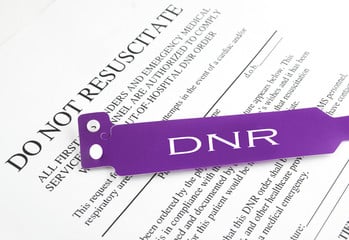Do Not Resuscitate (DNR) orders are crucial legal documents that inform healthcare providers of a patient’s wish not to receive cardiopulmonary resuscitation (CPR) in case of cardiac or respiratory arrest. These forms raise important questions about their validity and the need for notarization. Let’s delve into the topic of DNR forms and whether they require notarization.
Understanding Do Not Resuscitate (DNR) Orders
A Do Not Resuscitate (DNR) order is a medical directive that instructs healthcare providers not to perform CPR if a patient’s heart stops beating or if they stop breathing. This decision is typically made by the patient or their legal representative and is based on the individual’s preferences regarding end-of-life care.
Legal Validity of DNR Orders
DNR orders are legally binding documents that must be respected by healthcare providers. They are an essential part of advance care planning and ensure that a patient’s wishes regarding life-sustaining treatment are honored. However, the specific requirements for DNR orders can vary by state.
Do DNR Forms Need to be Notarized?
One common question that arises regarding DNR forms is whether they need to be notarized to be considered valid. The answer to this question depends on the state in which the DNR order is being executed.
State-Specific Regulations
Some states require DNR forms to be notarized to ensure their authenticity and validity. Notarization involves a notary public certifying the identity of the person signing the document and witnessing their signature. This additional step can provide an extra layer of security and prevent fraud or unauthorized changes to the DNR order.
States Where Notarization is Required
Some states, such as Texas and Florida, mandate that DNR forms must be notarized to be considered legally valid under specific circumstances. For example, in Texas an Out-of-Hospital Do Not Resuscitate (OOH DNR) order does not require notarization if there are two signing witnesses. However, if there are no witnesses, then it must be notarized. (Texas Administrative Code Rule §157.25(c)) It’s important to understand your state’s specific requirements, as failing to notarize the DNR form could result in healthcare providers being unable to honor the patient’s wishes in an emergency situation.
States Where Notarization is Not Required
On the other hand, some states do not require DNR forms to be notarized. In these states, the signature of the patient or their legal representative, along with the date of signing, is sufficient to validate the DNR order. It is essential for individuals to familiarize themselves with the specific requirements in their state to ensure compliance with the law.
Final Thoughts on DNR Forms and Notarization
When considering the importance of DNR orders and the need for notarization, it is crucial for individuals to understand the legal requirements in their state. While notarization may be necessary in some jurisdictions to ensure the validity of DNR forms, other states do not impose this requirement. By staying informed and following the proper procedures, individuals can ensure that their end-of-life wishes are respected and upheld by healthcare providers.
If you have feedback, questions, or ideas for future articles or Information Hubs, please contact us. Your insights help us create valuable content.


